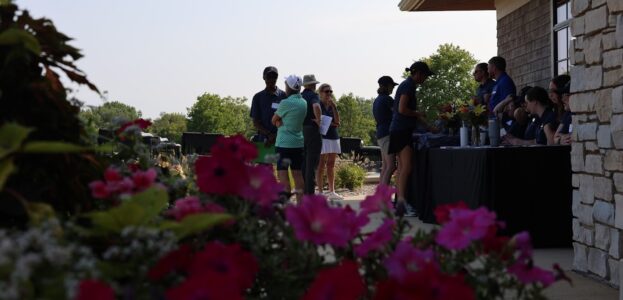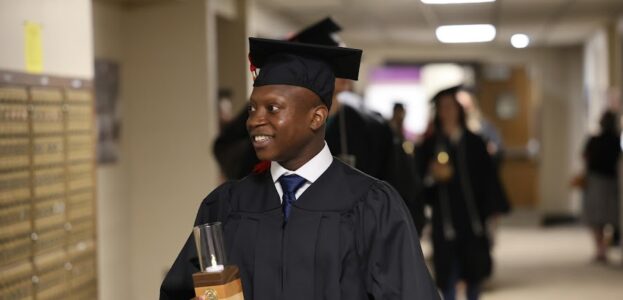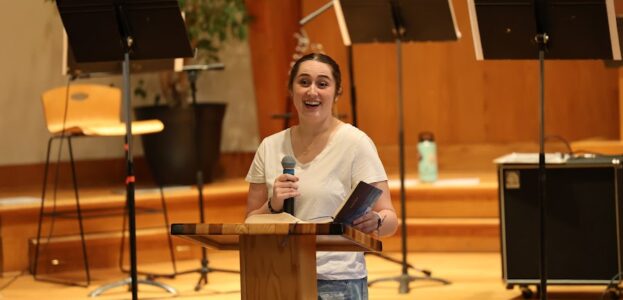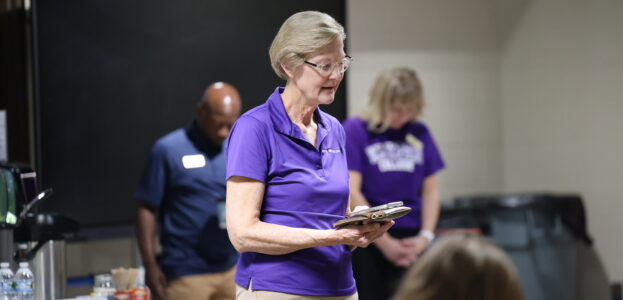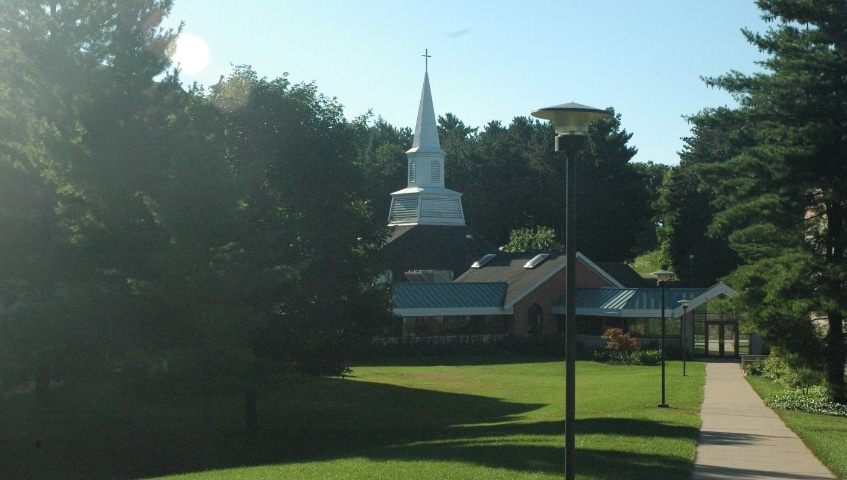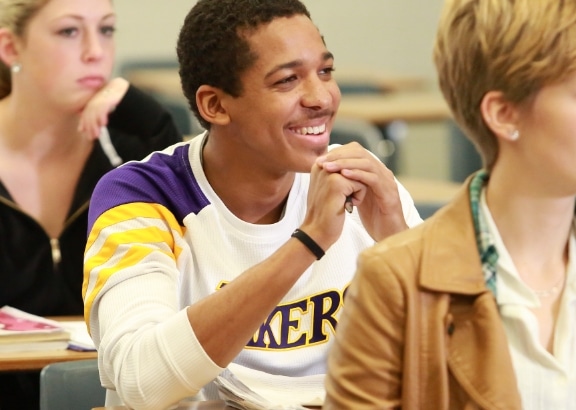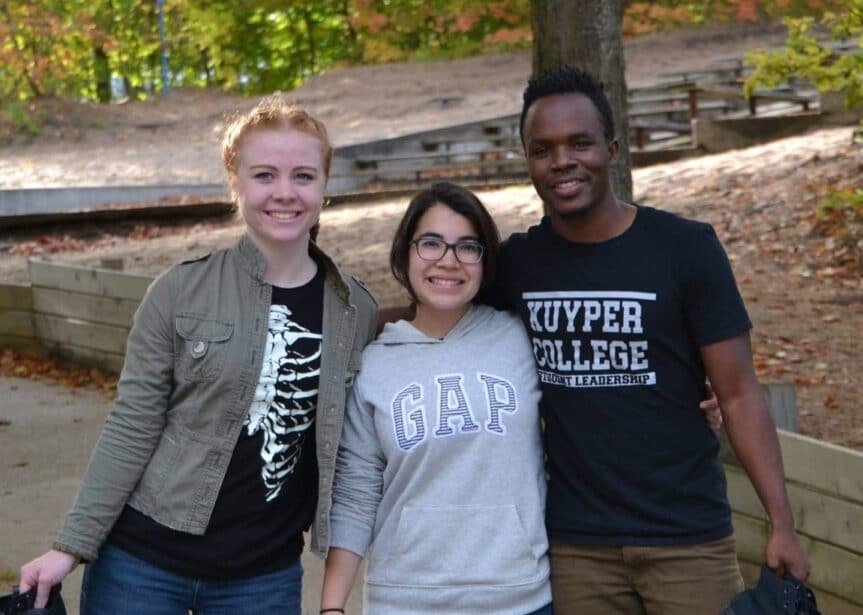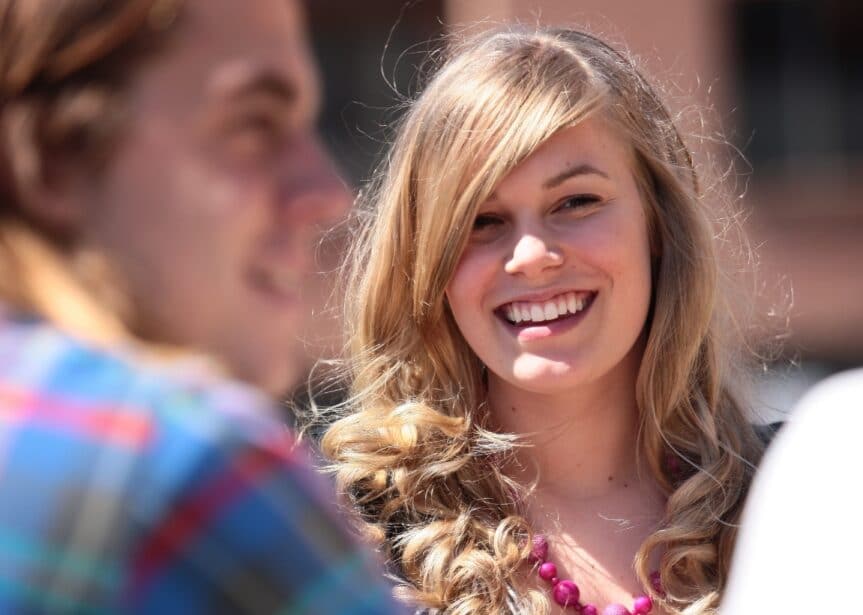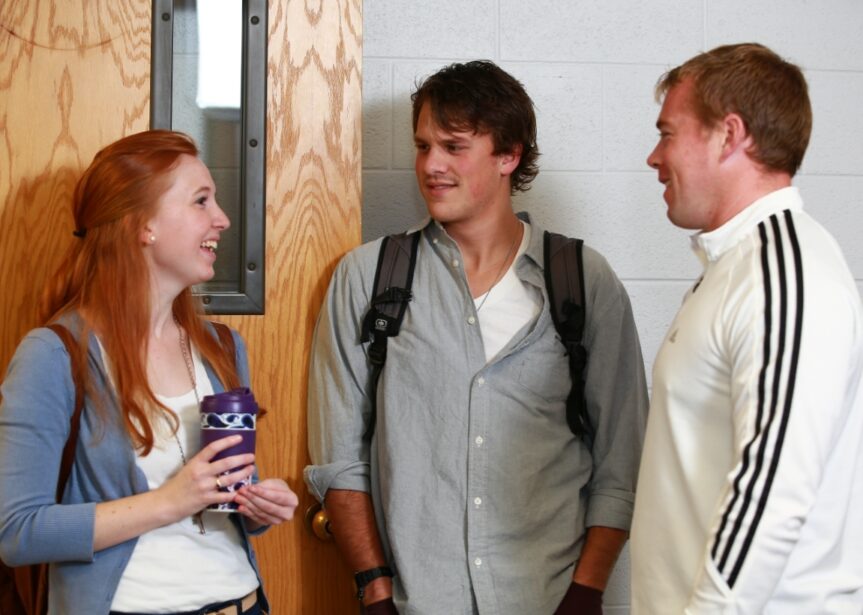Journey Of Faith
A long flight across the world to an ancient land. Sore feet walking in dusty sandals. A rocky path winding through a dry riverbed. A slow tread upward, a sweeping valley expanding below. Follow in the footsteps of Moses, David, and Jesus as the Word of God leaps from the pages of Scripture. This is Journey to The Land of The Text: the Kuyper Student Israel trips.
On any given Sunday, Christians file into church and listen to words inscribed long ago, in places many of them have never seen in person. It can be difficult to grasp the full weight of meaning contained in a Bible passage if you have never explored Hezekiah’s Tunnel or sat on the steps of the Temple where Jesus taught. You need not visit the Holy Land of Israel in order to understand Scripture but doing so certainly brings unique meaning to its words. At a place like Kuyper College, which believes in equipping its students with a biblical worldview, creating an opportunity to experience it firsthand made perfect sense.
“Before I came to Kuyper, I spent three weeks at Jerusalem University, doing graduate work on the geography and the history of the land. That was such a valuable thing for me, personally. I loved it,” said Dr. Dan Kroeze, Professor of Biblical Studies at Kuyper College, “Then I thought, if this was such an important experience for me, why shouldn’t Kuyper students be able to do something like it?”
As Dr. Kroeze and the Kuyper faculty brainstormed ways to make this dream a reality, they decided to create something that went far beyond enjoyable travel. Born out of this concept was a unique learning experience. They devised a college class that studied the Bible in its historical, cultural, and geographical contexts, both in the classroom and by traveling to the places where it was written.
“The first trip we did was in 2008, and it was sort of a trial. Thirteen students and a few other adults went, and it was a success. Because it went so well, we decided to do it again,” Dr. Kroeze said. He led the endeavor alongside Rev. Evan Heerema, who was on the staff at Kuyper College for over ten years. Together, they would continue to guide participants on a journey of growing in their faith and understanding of Scripture.
Great care and attention were given to the formation of a class that would nurture both minds and hearts. Kroeze recalled, “I spent a lot of time developing readings and assignments. The trip takes place in May, and we start meeting about twice a month, starting in January, to do teaching and orientation.” Over the twelve years that the program has been in operation, the curriculum has evolved from general background into substantial lectures and research.
After this period of preparation, participants board a plane and begin their pilgrimage across the globe. “We are in Israel, on the ground, for almost two weeks,” said Dr. Kroeze. During this time, they are able to sample a wide variety of the terrain and visit many different locations. “Israel is about eighty or ninety miles, North to South, and about forty miles wide. We can cover pretty much everything, from desert to mountains and everything in between,” he noted.
A typical day out in the field might begin by visiting the Shephelah, an area of conflict between the Philistines and the Israelites in the Old Testament. The first stop might be Bet Shemesh, a site connected to Samson and to the Ark of the Covenant. Then, the group may move on to Azekah, where David met Goliath. For lunch, they could visit Tel Maresha, the site of a Judean city at the time of the First Temple. The last stop of the day may be Tel Lachish, an important military city in Israel’s history.
The next day, they might begin by exploring the Old Testament site of Tel Arad in the land of Abraham, situated on the border of the Negev and Judean Deserts. The group could then stop to rest at one of the beaches on the Dead Sea. There, they would have the unforgettable experience of floating in the buoyant, salty water. Such a day might conclude by hiking the Wadi Zohar, one of the dry riverbeds that fills with water only during heavy rain and appear often in biblical imagery.
The invigorating pace of the trip brings its own obstacles, though. “It’s pretty intense, and I warn people of that before they go. We get up and board the bus early in the morning, and we don’t get back to the hotel until the evening. We might visit five or six sites in a day, many of which we have to walk out to. So, it can be pretty challenging,” Dr. Kroeze advised.
This kind of physical strain brings a feeling of accomplishment and a renewed appreciation for the demands of living in ancient Israel. Perhaps the most challenging hike takes place at Masada, the wilderness stronghold where the Zealots made their last stand against Rome in the first century A.D. “There’s this so-called ‘Snake Path’ that you climb, and it has all these switchbacks. It probably takes about an hour, maybe a bit more, but it’s pretty grueling,” Kroeze said, “Everybody, when they get to the top, thanks God for the grace He gave them to do it. Feeling your physical weakness teaches to you depend on God and rely on His provision every day.”
Once they have arrived at a particular location, Dr. Kroeze often begins his lesson with the historical and geographical context. As they hear the story of the place they are visiting, his listeners are transported back to ancient times. Standing near Azekah, they can picture David strolling out to meet Goliath, slingshot in hand. On the shores of the Sea of Galilee, they are almost able to smell the fish breakfast Jesus cooked his disciples. At the Mount of Beatitudes, where Jesus delivered the Sermon on the Mount, they are nearly able to catch His words on the wind.
After learning how a particular site shaped God’s people in the biblical narrative, Dr. Kroeze asks his students to consider how it might also shape them. “I’ll usually turn it into more of a faith lesson,” he said, “I’ll ask them to think about what it means for us. We will consider how it can change us in our own spiritual walk with God.” A time of discussion usually follows, before the group disperses to reflect individually on what they have just learned. This gives each person the opportunity to spend time in prayer, considering what God might be teaching them. “What we want to do is study how the Land and Scripture interact not just to teach us, but to change our lives,” noted Kroeze.
Back at the hotel in the evening, the group splits up to debrief the day. “After the trip, people often comment that one of the best parts was their small group,” he recalled. Meeting with the same few individuals every night, talking and praying together, allows participants to forge relationships and learn from each other in a deeply meaningful way. Often, they will shed tears and gather for photos together once they return home.
During his time in the Holy Land, Dr. Kroeze has formed his own unique bond. According to regulations, foreigners must be accompanied by a local guide when traveling to certain locations. On one of the first trips, the Kuyper College group began working with a man named Salah. “We just hit it off right away,” Kroeze recalled, “We’ve become friends over the years. Since then, I’ve been to his house in Jerusalem for dinner and met his family.” The two often correspond by email in between journeys, and their friendship has only enhanced the experience for the Kuyper group. “We get our own airfare from the United States to Israel, and Salah coordinates everything on the ground for us – buses, hotels, entry fees, and other things like that,” Dr. Kroeze said, “We know where we want to go, and we know what we want to do, and so does he, by now.”
Experiencing Israel firsthand, even with a good friend as your guide, can be breathtaking at times. “We all have an idea in our minds of what it’s going to look like. When people get there, I think they’re overwhelmed by what they’re seeing and where they are,” said Kroeze. The text of Scripture comes to life for them in a way they have never experienced before. At places like the Church of The Holy Sepulcher, built on the site of Jesus’ death and resurrection and considered the holiest site in Christianity, they might witness others kneeling in prayer, tears streaming down their faces. Kroeze added, “It does make a sort of overwhelming, spiritual impression on people.”
Often, the group feels this sense of awe alongside many others from all around the world. Dr. Kroeze described visiting the Western Wall, what remains of the Second Temple built by Herod the Great. It is the holiest site in Judaism and draws multitudes of people from all walks of life to its towering limestone boulders. “It’s a highlight. We try to go on a Friday night, because it’s the beginning of the Sabbath, and crowds of Jewish people come out to the Western Wall,” Kroeze said.
Many of those who gather bring a spirit of celebration with them. They come to honor their cultural heritage and collective identity as Jewish people, Dr. Kroeze observed. “There will be singing and dancing, especially among the young folks. You will even see them standing on their chairs to talk with each other over the wall that separates the gendered prayer area,” he noted. Orthodox Jews also come to study the Torah and pray, approaching the Wall to touch the stones in reverence. “It’s quite an education to see what goes on at the Western Wall. It’s such an awesome scene,” he said.
But the location Dr. Koeze’s loves the most does not draw large crowds of jubilant visitors. It is a place of solitude and often desolation that carries a unique significance. “The southern region of Israel is almost all desert, and I really enjoy it. It has a beauty of its own, with the brown of the landscape contrasted against the blue sky. But it’s not just the scenery that I love, it’s the lessons from the desert,” he said, “God’s people were a desert people. They spent forty years there after they came out of Egypt. That was where their faith was shaped and formed, where their trust in God was developed. It’s where God provided for them.”
After considering the historical experience the people of Israel had with the desert, Dr. Kroeze will often ask his students to reflect on what a personal, metaphoric desert might be in their own lives. It could be illness, relational conflict, or unemployment, any kind of hardship that feels isolating and desolate. “Then, I ask them to think about how they can meet God in that desert and how He provides for them, even there,” he said.
Participants embark on Journey to the Land of the Text expecting to grow in their understanding of the Bible in its historical, geographical, and cultural contexts, but they leave having developed their knowledge of themselves and awareness of God’s presence. They meet Him when they see His birthplace in Bethlehem or gaze out at the peak where Moses glimpsed the Promised Land. They feel Him while walking along the same roads He did and feeling the same soreness in their muscles. They encounter Him through reading His word in the places it was written down by His faithful servants.
After returning home, Dr. Kroeze said, “You never read the Bible in the same way again. Because all these place names and geographical names actually mean something now, they’re not just words on a page. They figure into the actual message of the Bible. Before you go, it’s like you’re reading the Bible in black and white. When you come back, it’s like you’re reading the Bible in HD color.”



